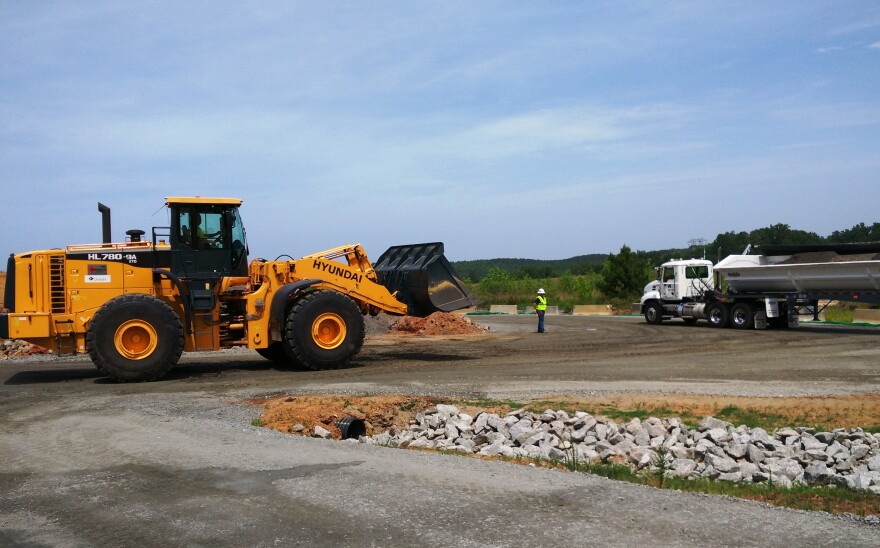Draft recommendations from North Carolina regulators would require Duke Energy to eventually remove coal ash from two-thirds of the company’s ash ponds at power plants across the state. That’s about the same number of sites that Duke has already said it’s targeting for ash removal.
Duke Energy has agreed to remove coal ash from most of its ponds. This would add one more to the list: a pond at the Roxboro plant in Person County. Regulators classified it and eleven other ponds across the state as an intermediate risk in the draft report. That means Duke would have until the end of 2024 to remove the ash.
“Whereas a low-rated pond would have to be closed by December of 2029,” says Tom Reeder the state’s Assistant Secretary for the Environment.
The draft put coal ash ponds at three facilities into the low-risk category, including a couple in Rutherford County at the Cliffside plant. Duke would not have to remove the coal ash from those ponds, but could, for example, drain the water and cap them.
A quarter of the state’s ponds were somewhere in between intermediate and low risk. Reeder says regulators didn’t receive enough information from Duke to classify these ponds. They include those at Allen Steam Station in Gaston County, the Marshall plant in Catawba County, and Buck in Rowan County.
“I guarantee you by this summer we will have definitive, science-based recommendations for every one of these impoundments that’s in the best interest of the state of North Carolina,” says Reeder.
A Duke Energy spokeswoman says regulators now have all of the information they need to complete the classifications.
These classifications differ greatly from another draft made public by the Southern Environmental Law Center earlier this month. The document showed nearly all of the state’s ponds classified as high risk, which would require the state to remove the ash by 2019.
“What we have is a combination of bureaucratic incompetence and political gamesmanship,” says Frank Holleman, a senior attorney at the SELC.
The state’s Assistant Secretary for the Environment Tom Reeder says regulators came up with several drafts and the center simply cherry-picked that one.
Regulators will release further explanations for how they came up with these draft recommendations within the next month.
The state will take public comment on the classifications before finalizing them.





